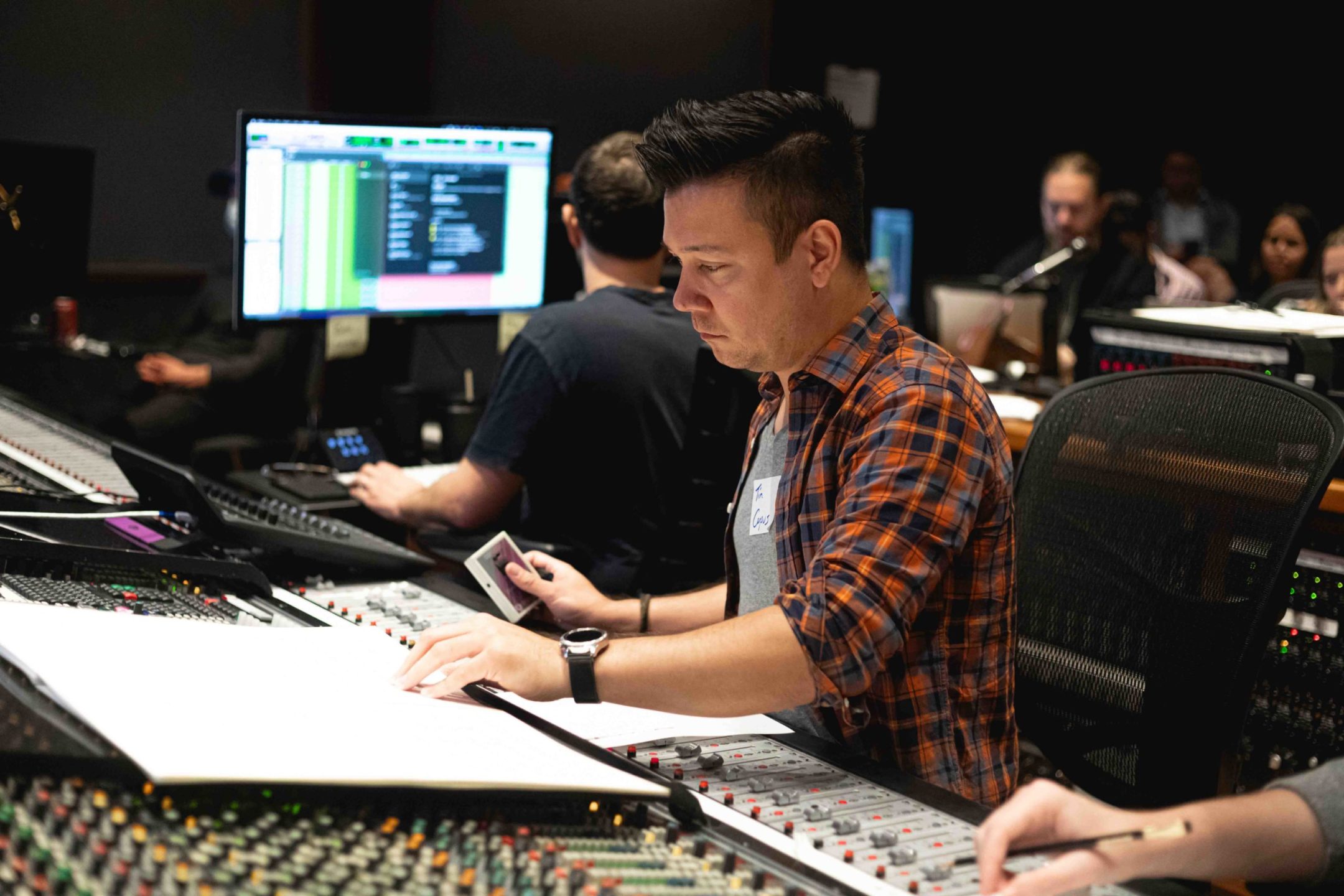How Much Should I Charge as a Film Composer?
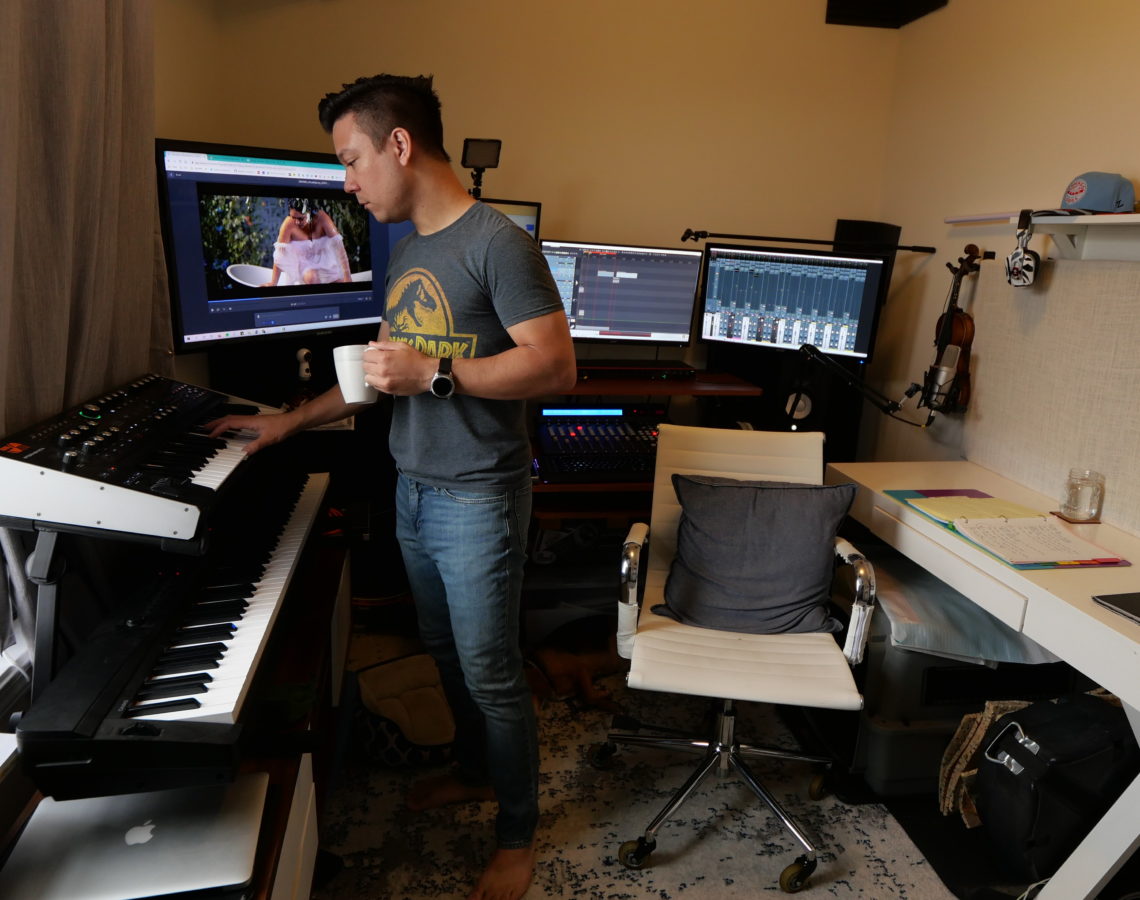
This is a common question that’s asked all the time on forums and Discord servers. If you’ve thought it or asked it, you’re not alone. Determining the value of your skills is hard to do, especially when you’re starting out. Film music is an industry with a long, wild history, and there aren’t cut & dry numbers for those starting out.
If you’re starting out, you likely need to supplement your film composing income with something else. This is very common. A lot of musicians teach, assist, produce, perform, or do anything else in addition to being a composer. That’s totally fine. As you’re building out your career as a composer, don’t shy away from thinking about the business side of the industry. Here are a few things to keep in mind when determining what you should charge for your film score.
A good place to start is to think about what is it costing you to be a film composer. Think about what you need, what you want, what value are you offering. A film composer is a business person and this is the Music Business, so don’t forget to think about what you bring along with you to a project beyond your talent and skills.
If you don’t have a big following and you’re starting out with 0 equipment, that does not mean that you have 0 value. You still have value and you will be building your value every day that you’re working, learning, and growing.
Composer Costs
These are a few thoughts of our possible “costs” as composers.
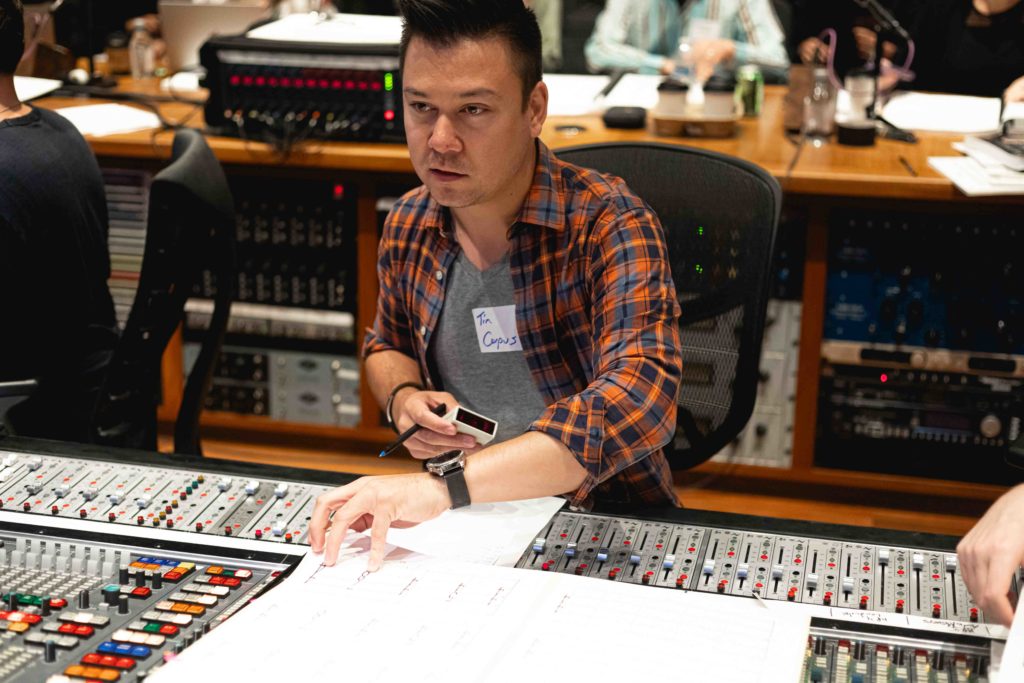

- Equipment: Composers use a lot of expensive equipment.
- Composing and recording programs like Cubase, Reaper, Pro Tools, Logic, Dorico, Finale, and more cost on average $400. These also will require a serious computer to run well.
- Hardware like microphones, instruments, pre-amps, cables, audio interfaces, good speakers, mixers, MIDI keyboards – more expensive than we want to admit. 🤣
- Software: EQ, compressors, reverb, distortions, and more can range $100 – $2,000+ depending on what they are. Composers will typically have several different options of these because each typically has a particular nuance for a specific use.
- Virtual Instruments like brass, strings, percussion, pianos, etc. can stack up pretty quickly. A quality library for just string instruments is often ~$500. Composers will often mix and blend various libraries to achieve the most real sound. (If you’re just starting out, or if you’re a seasoned professional, use all of the amazing free gear out there! There are tons of a brilliant free plugins.)
- Composing Studio: Even if you’re working from your bedroom, your equipment is taking up space in your home. Keep this in mind when figuring out your annual expenses / taxes.
- Utilities: Composing equipment often takes a bit if electricity to run, you need the internet to share files, and you probably need some insurance to cover your gear.
- Live musicians: Depending on what is needed for the project and the scope of the recording, musicians may be union or non-union, but will need to be paid. Musician rates vary drastically across the globe. Pay your musicians (and everyone on the project) fairly.
- Recording studio fees: These costs include studio rental time, recording engineers, etc.
- Mixing/Mastering engineer: In large recordings it can be especially useful to have a mixing and/or mastering engineer separate from your composer and recording engineer. This is another set of trained ears to help balance the sound of the recordings.
- Music preparation: Music preparation is the actual creation of sheet music for the live players during the recording. If there is a lot of music to compose for a score, it can be helpful to have someone assist the composer in creating the score and parts for the recording. The process of preparing and printing the sheet music is extremely time intensive, so sometimes it’s better to use the composers time to focus on writing music rather than creating sheet music files. I talk more about music preparation here.
- Printing: If you are handling your music preparation, printing can be a significant cost.
By the Minute Rates
“I heard composers get paid by the minute”
There are often “by the minute” rates like $100/minute tossed around for film composers. $100/minute for finalized music is extremely low. People often talk about professional composers creating 2 minutes of music in 8 hours of work a day. This is of course a generalization, (the amount of time would change depending on the complexity of the music) but assuming that rate of creation even a ten minute short film will be a real time investment for any composer.
The above is also a composer writing just one take at the music, so then we need to factor in the additional time for:
- Revisions
- Mixing
- Sheet music preparation
- We’re not even counting in their time recording or producing
Let’s make some random assumptions and generalizations about a project with those 2 minutes the composer wrote in one day. Let’s add:
- 4 hours of writing for 2 revisions
- 1 hour of mixing those 2 minutes of music
- 2 hours for either perfecting those virtual instrument sounds or preparing the sheet music^
So the composer spent a total of ~15 hours of work on 2 minutes of music. At a rate of paying them “$100/minute”, they’re actually receiving $200 / 15hrs = $13.33/hr. This is less than minimum wage in more than a dozen US states including Arizona, California, Colorado, Illinois, Maine, New York, and Washington (2024 stats).
^Virtual instruments take a lot of time to finagle and adjust to sound good. They do not sound perfect out of the box, there are a lot technical reasons why.
In this video (shared with me by composer and a founding member of Teammates Kent Kercher) Chris Do explains why charging by the hour can be a fools errand.
Union Rates
A lot of work as a composer is freelance, these union rates are just for further information.
If you still want some more information about what others are charging, look at some local union rates for performers, copyists, etc. For example, you can view some American Federation of Musicians (AFM) music preparation rates here.
Not every project is union, so these rates do not apply across the board, but they can certainly be helpful to know about. The AFM, as well as your local, has information on their regional rates and they keep an eye on national trends as well.
Film Music Budgets
Music budgets can include the composer fee and then also the recording fees. Sometimes producers lump all the music budget together as a package deal for the composer to then pay the musicians and studio rental. It depends on the needs of the project.
Sometimes it’s talked about when line producers think about a % of their budget going towards the music budget. For smaller projects it could be 10-15%, for larger budgets it could be 1-10%. If your project has a total budget of $50,000, 10% would be $5,000. This is only an approximate starting number to think about, every composer has a different fee structure depending on where they are in their career journey and the specifications of the project. The cost to the composer depends a lot on the amount of music needed, the style, the demands (timeline, scale of the project, etc.).
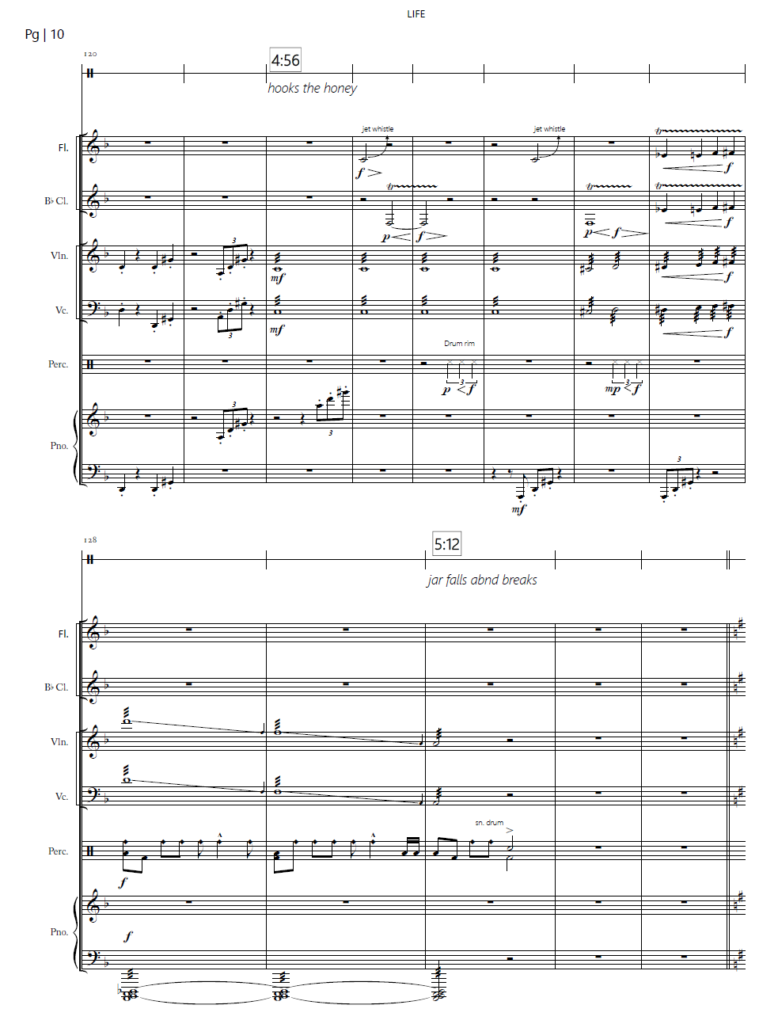

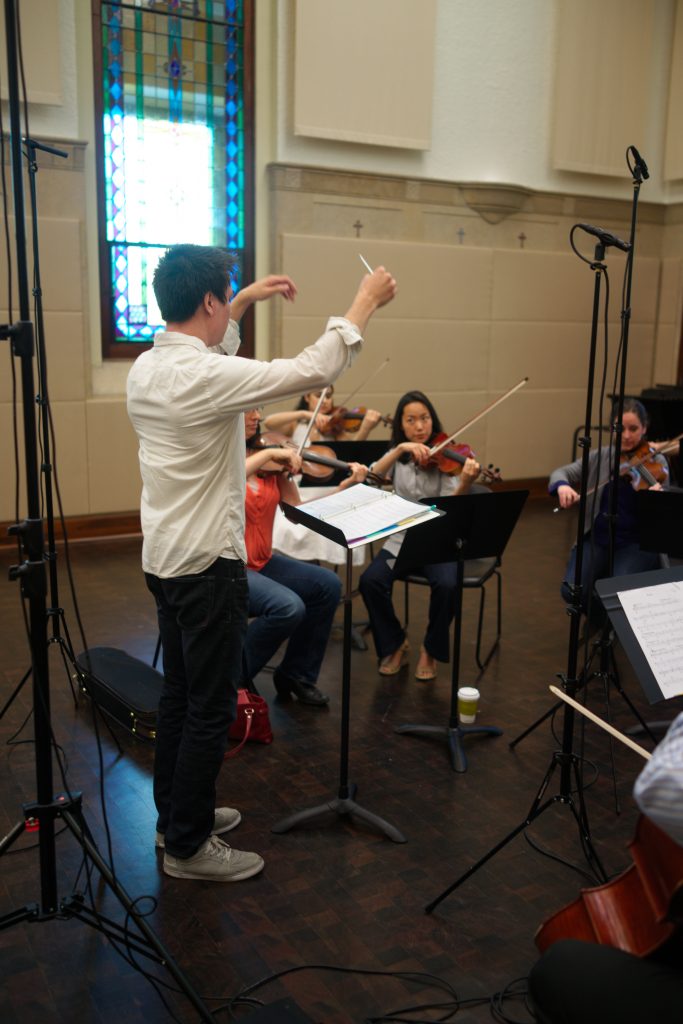

What is Your Value?
There’s an amazing spreadsheet, Nathan Moody’s Creative Accounting Freelance Rate Calculator that will help you determine your starting hourly rate. This spreadsheet helps you calculate what your daily, weekly, and annual costs are for your life. From there, it will help you determine what you need to be making at an hourly rate to meet your bills.
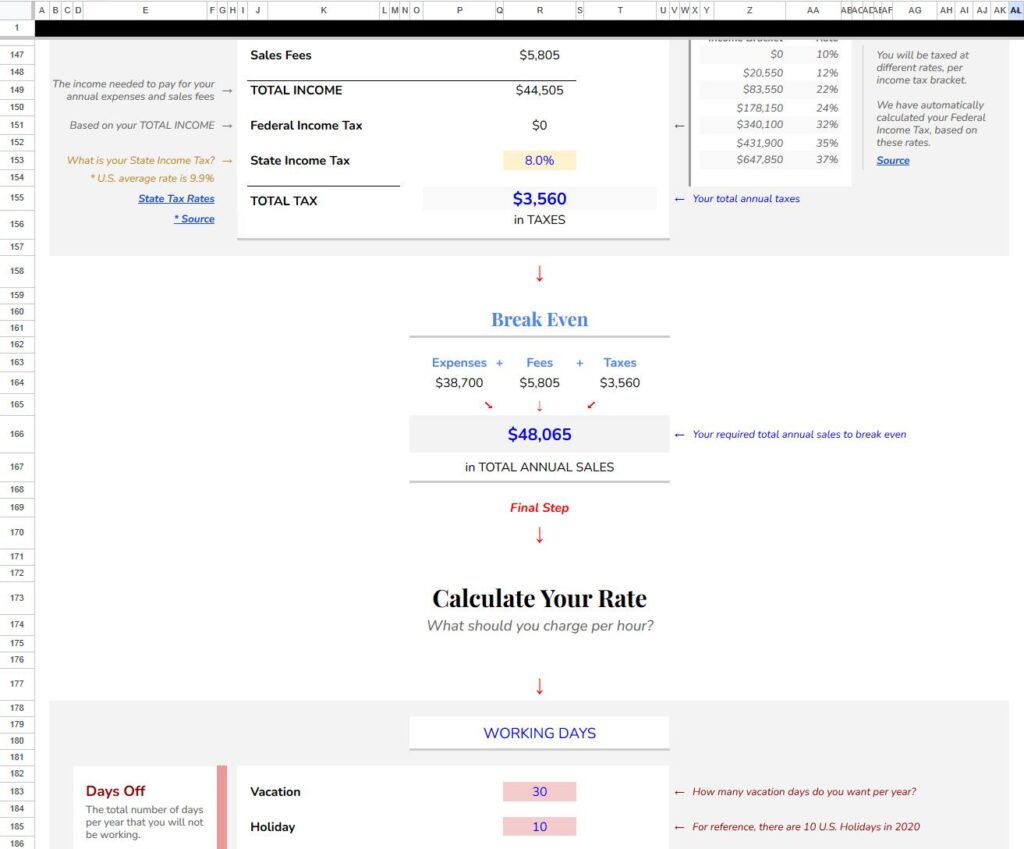

In my experience as a freelancer, composing projects aren’t often billed “by the hour”. If you’re asked to write a score for a film you are typically offered a lump sum, or billed by the amount of music you are producing.
If, for example, the formula says you need to be making $45/hour to meet your budget, that doesn’t necessarily mean that you charge an hourly rate of $45. You need to be making $45/hour over a certain number of hours (whatever you have in cell R201) to meet your budget. $45/hour is your starting calculated hourly rate. Now you could add on your value which can be influenced by your work variables:
- Your career experience
- Your equipment, gear – basically your offering as a composer
- What is the turnaround time of the project? (Is it a rush job? Are they giving you a lot of time and freedom?)
- What is the scope of the project? (is this 60 minutes of music or 2 minutes of music? Are there recording sessions or all in-the-box?)
- How complex is the score? (is this just a few long tones of synthesizers for effect, or is this a very detailed and ornate textural score?)
You can see why the above information creates a range and not a specific number. Once you have that range in mind, you also have to consider what you are getting out of the project in the negotiations.
The Value of the Project
Consider how much time this project is going to cost you, how badly do you want the project, what are you getting out of it, and now you can begin to calculate a total fee.
- Are you replacing a temp score and the project is going to Sundance? That could mean major exposure.
- Are they footing the bill to release a soundtrack?
- Are you in love with the story, does it relate to a topic that is important to you, or it’s a friend and you want to help out?
- Does the Director have a bigger project in the pipeline that they can offer you?
personal value of the project = P.V. adjustment (could be a negative or positive number)
The value can move lower if you personally want the project more (reducing the amount you’re willing to receive to be on the project). Value can move higher if you really don’t care about having the project.
career value of the project = C.V. adjustment (could be a negative or positive number)
The value can move lower if you are gaining a lot of connections or career steps from the project. Value can move higher if you’re not getting anything out of the project (not likely if you are starting out)
Now your hourly rate has expanded or shrunk, moved left or right.
Here is one idea of how you can start to calculate a fee. There are a lot of factors for this and it’s not cut and dry. This is just a starting point so that you can understand what you are valuing in this specific project.
(starting calculated hourly rate) + (work value) = Hourly rate(hourly rate) x (time it will take on the project) = Lump sum(Lump sum) + (P.V. adjustment) + (C.V. adjustment) = Total AmountExample Calculations
(using general, low, easy calculations – this blog post is obviously not financial advice)
Step 1: ($45/calculated hourly rate) + ($155 work variables) = $200/hour
Step 2: ($200/hour) x (10 hours of work) = $2,000
Step 3: $2,000 + (P.V. adjustment of -$300 because you really want this project) = $1,700
Step 4: $1,700 + (C.V. adjustment of -$200 because there are members of the crew that you really want to work with) = $1,500
The resulting number states that you are willing to accept $1,500 for 10 hours of work. If that is incorrect, adjust your values and try again.This formula includes some generalizations: The P.V. and C.V. are unique to you and it may be a difficult to determine a specific dollar amount. Yes, some of these things are intangibles. This process, however, helps you consider and start to quantify what you are valuing on the project and therefore the range of your fee.
Moving Forward with Your Fees
You don’t have to stick to your range, now you negotiate. You can accept projects for a higher or lower fee, but now you can see how good or bad that can be for you. That is up to you to determine. If you are just starting out, you will likely work at a low fee on your starting projects while you build your experience and perceived value within the industry. Your rate should be growing as you grow.
Undercutting other industry workers is a bad move. Fair pay for all is important to the industry, the community, and civil society. We as composers need to stop thinking about everything as a competition with one another. Lose the scarcity mindset that you are fighting for scraps. High tide floats all boats, so celebrate your friends wins and their projects. If you lose out on a bid it’s not the end of the world and it could be for a million different reasons. In return, your friends should celebrate your wins and projects. That is what the community is for.
Is this confusing? 🤣 Yes…well kind of, but it’s an important exercise for you and your business.
Knowing your value range helps you target the right projects. If you’re just starting out, it’s probably a waste of time to be going after high level projects without some prior experience. If you’ve been doing this for a while and you’re still charging $100/minute for music, you can see how you are undercutting yourself and others.
Need help figuring this all out, reach out and let’s chat.
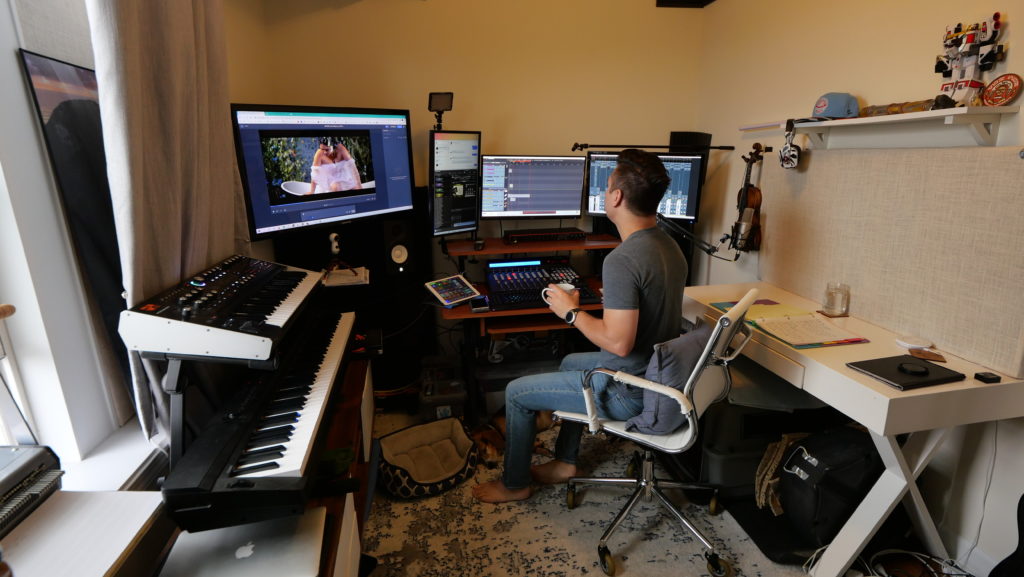

Tim Corpus, a Filipino-American composer and arts manager, brings his music to global audiences with performances at renowned venues like Carnegie Hall, the Bolshoi Theater in Moscow, and the Kennedy Center, as well as recognition on BBC Radio3 and CNN Money. In films and interactive media, he contributes as a composer and sound designer, including the upcoming video game “Ira, Act I: Pilgrimage.” He has received numerous awards including winning Best Original Score (Artists’ Choice Awards) and nominated for Best Original Music at the Motion Club Indie Film Awards. His album “MMXX,” received GRAMMY consideration for the 2022 awards, earning praise from critic Robert Hugill who described it as “a striking disc.”
An accomplished orchestrator and arranger, he often prepares music for esteemed performers worldwide, including Renée Fleming, Andrea Bocelli, Placido Domingo, Milwaukee Symphony Orchestra, Detroit Symphony Orchestra, The Ryan Opera Center at the Lyric Opera of Chicago, Third Coast Percussion, and others.
Recent soundtrack releases include the full soundtrack to Ending the War on my Body, released in 2023. Other recent projects include Strange Creatures in the Adult Wilderness and the Jordan Black’s comedy series.

